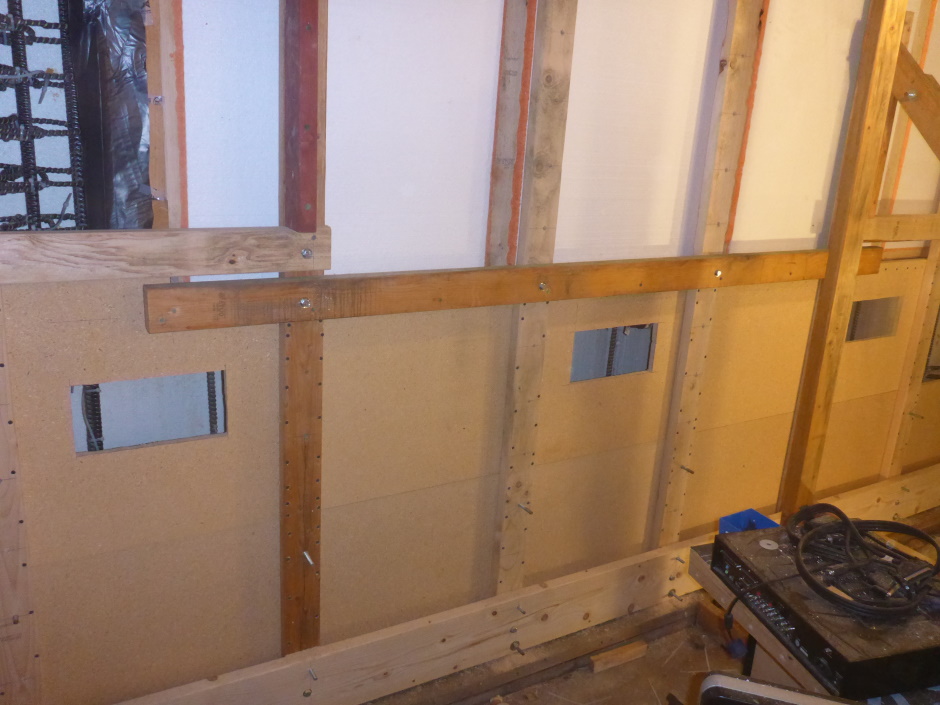You’re building a garage, and it’s time to pour the concrete. A friend tells you to add rebar, while another insists it’s unnecessary. Who’s right? The simple answer is that it depends. Your garage floor’s needs, your budget, and the local building codes all play a part in determining if rebar is essential.

Image: www.carnationconstruction.com
This guide will dive deep into the world of rebar for garage floors, breaking down the whys and why-nots, the benefits and drawbacks, and the considerations for making the right decision for your project. Whether you’re a seasoned builder or a DIY enthusiast tackling your first garage, this information will equip you to make an informed choice.
Understanding Rebar and Its Role in Concrete
Rebar (short for reinforcement bar) is a steel rod used to strengthen concrete. Concrete is incredibly strong under compression, meaning it can handle significant weight pushing down on it. However, it’s much weaker in tension, meaning it’s susceptible to cracking when pulled or stretched. That’s where rebar comes in.
Imagine a concrete slab as a large, brittle cookie. If you push down on it, it’ll take a lot of force before it breaks. But if you try to bend the cookie, it’ll snap easily. Rebar acts like the “chocolate chips” embedded in the cookie. The strong steel rods reinforce the concrete, preventing it from cracking when it experiences tensile stress. This makes the concrete stronger and more durable, able to withstand loads and movement without crumbling.
Why Rebar Might Be Needed in Your Garage Floor
The decision to use rebar in your garage floor comes down to a few key factors:
1. Intended Use:
A garage can be used for various purposes beyond storing your car. If you plan to use it as a workshop, a home gym, or a heavy-duty storage space, you’ll be placing more weight and stress on the floor. In such cases, rebar is highly recommended to prevent cracking and ensure longevity.

Image: www.youtube.com
2. Loading Conditions:
The weight your garage floor will bear directly impacts the need for rebar. If you’ll be parking large vehicles, installing heavy machinery, or storing heavy items, rebar is essential to provide the necessary strength and support.
3. Local Building Codes:
Building codes vary based on location and specific requirements. Be sure to check with your local authorities to see if they have regulations regarding concrete reinforcement for garages. Adhering to these codes is crucial for safety and compliance.
4. Soil Conditions:
The type of soil your garage is built on can influence the need for rebar. If you have expansive soil prone to movement due to changes in moisture, rebar can help prevent cracks from forming as the soil shifts. This is especially important for areas with significant seasonal temperature variations.
Benefits of Using Rebar in Your Garage Floor:
Here are some key advantages of incorporating rebar into your garage floor construction:
- Increased Strength and Durability: Rebar significantly enhances the concrete’s strength and resistance to cracking, ensuring a long-lasting and reliable floor for years to come.
- Improved Load Capacity: Rebar allows your floor to handle heavier loads without sagging or developing cracks, essential for storing heavy equipment, vehicles, or materials.
- Crack prevention: Rebar helps prevent the formation of cracks, particularly in problematic soils or under heavy loads, preserving the structural integrity of your garage floor.
- Enhanced Resistance to Temperature Fluctuations: Rebar helps mitigate the impact of temperature changes on concrete, reducing the risk of thermal expansion and contraction leading to cracks.
Potential Drawbacks of Using Rebar:
While rebar offers numerous benefits, there are also a few things to consider:
- Increased Cost: Rebar adds an extra cost to your construction project. The material itself, along with the labor needed to install it, can increase the overall budget.
- Potential Corrosion: While rebar is generally resistant to corrosion, it can rust over time, especially if exposed to moisture or certain chemical environments.
- Increased Complexity: Installing rebar requires additional expertise and planning compared to a plain concrete pour. You’ll need to ensure proper spacing and layout for maximum effectiveness.
Alternatives to Rebar:
If you’re looking to avoid the costs or complications associated with rebar, there are some alternatives:
- Fiber-Reinforced Concrete: This material incorporates small fibers (often made of steel, glass, or plastic) into the concrete mix to enhance its strength and crack resistance. This is often a less expensive and less complex option than traditional rebar.
- Thicker Slabs: A thicker concrete slab can provide more strength and reduce the risk of cracking without using rebar. However, this adds to the weight of the construction and the overall cost.
Determining Your Needs:
Ultimately, choosing whether or not to use rebar in your garage floor depends on a careful assessment of your specific needs and requirements. Consider the following:
- Intended use: What will your garage be used for?
- Loads: What will the floor be supporting in terms of weight?
- Soil conditions: What kind of soil is your garage being built on?
- Local codes: Are there any building code requirements regarding concrete reinforcement?
- Budget: How much are you willing to spend on added reinforcement?
Once you’ve considered these factors, you can determine the best course of action for your project. If unsure, consult with a licensed structural engineer or a reputable concrete contractor who can provide expert advice based on your specific circumstances.
Do I Need Rebar In Garage Floor
Conclusion:
The decision of whether to use rebar for your garage floor is not a one-size-fits-all situation. By understanding the benefits and drawbacks, exploring alternatives, and considering your unique needs, you can make an informed choice that ensures your garage floor is built to last and meets your specific requirements. If in doubt, consulting with a professional can provide peace of mind and ensure a successful project.



/GettyImages-173599369-58ad68f83df78c345b829dfc.jpg?w=740&resize=740,414&ssl=1)


